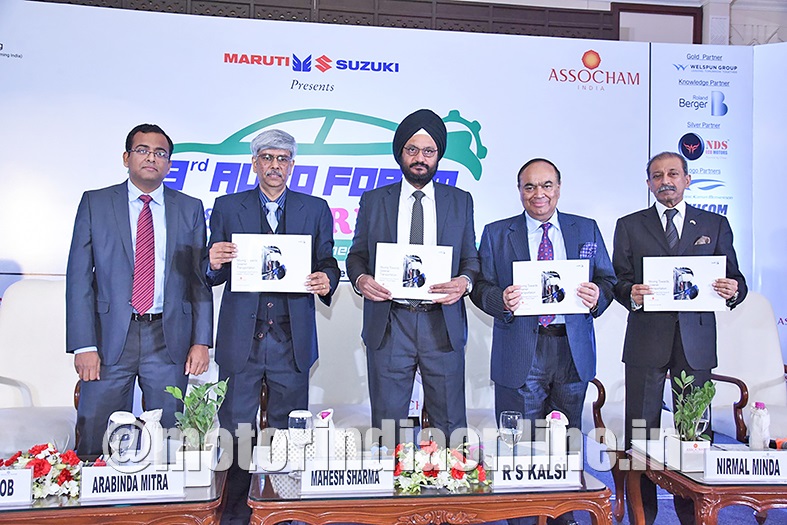Office of Principal Scientific Advisor to set up committee to look into the future of mobility
The Government will soon roll out the second phase of the FAME India scheme on a consortia-based approach, a top official said at an ASSOCHAM event held in New Delhi.
“We are now going to launch the second phase of (Faster Adoption and Manufacturing of (Hybrid &) Electric Vehicles). This is a consortia approach that we are putting along with the Department of Heavy Industries and Department of Science and Technology,” said Dr. Arabinda Mitra, Scientific Secretary, Office of the Principal Scientific Advisor to Government of India, in the inaugural address at the ASSOCHAM Auto Forum.

Member, Managing Committee, ASSOCHAM
Dr. Mitra also informed that in the FAME II mission, the Government as of now is going to allocate Rs. 350 crores to have a concerted investment in research and innovation addressing three components that are very important for India – development of battery and its components, development of motors using rare-earth magnate materials, and development of electronic control systems, technologies and know-how – which together could be put as power electronics.
He further said the Government was totally cognisant of the fact no industry has the capability or also the intent to put in the risk capital required to make this happen. “Therefore the Government is also thinking of creating a risk-capital that can go along with this and working on a consortia mode putting together the industry, academia, start-up enterprises to connect and look at each of these problems in a holistic manner.”
Dr. Mitra added: “We have to also look at huge amount of international collaborations required to leapfrog in this area of research and innovation.”
Urging the industry stakeholders, he said, “You will have to look at investing in research as a part of your enterprise, it cannot be something that you can put under the carpet otherwise we would be again, may be after five years down the line, importing the whole stuff from China or somewhere else.”
Stating that around 20-25 per cent of air pollution in large cities comes from automobiles, he said there is a need to see that its effect on health and economy is going to be very negative. “Therefore, electric vehicles or cleaner form of mobility has to come as the way forward.”
He disclosed: “In the office of Principal Scientific Advisor we are now setting up a committee that could look into the future of mobility, what are the futuristic technologies that we need to address together both in terms of personal and public mobility which the country needs to gear up in the future.”
Dr. Mitra also said that India needs to look at the research, development and innovation route to make e-vehicles economically viable today itself. “We cannot wait for five years, the R&D part of this needs to be focussed in a way through a very close public-private partnership (PPP) to see effectively where we could work together to create a strategy for ourselves.”
He further said that the current policy and strategy that has to be formulated has therefore, to be done through a consultative basis. “It has to make business sense, look at affordability, scalability, market-driven factor and this can only happen today through a close interaction between the government, industry and people at large.”
Others who addressed the ASSOCHAM Auto Forum included Mr. R.S. Kalsi, Chairman, ASSOCHAM National Council on Auto & Auto Ancillaries, and Senior ED, Maruti Suzuki India Ltd., Mr. Nirmal Minda, CMD, Minda Industries Ltd., Mr. Jeffrey Jacob, Partner, Roland Berger, and Mr. Rahul Sharma, ASSOCHAM Managing Committee Member.